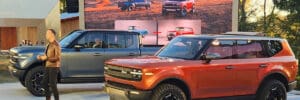
Heavy on heritage and light on details, the launch event showed Scout’s concepts for an EV 4×4 that’s every bit the equal of Jeep or Bronco.
Scout Motors, the startup electric-truck maker owned by Volkswagen, took the wraps off concepts for its first two 4×4 models outside Nashville on Thursday evening. The Terra truck and the Traveler SUV share most design and interior cues, with the truck riding on a longer wheelbase. While the vehicles shown will change, Scout executives suggested that what the assembled fans, owners, and reporters saw was 85 to 90 percent of the production vehicles.
Two different powertrains will be offered: a battery-electric version with up to 350 miles of range, and the Harvester model with a range-extending gasoline engine that delivers a combined range of more than 500 miles. It’s not a plug-in hybrid but a range-extended EV, meaning the gasoline engine powers a generator that recharges the battery, but cannot power the wheels mechanically. Scout prices will start at roughly $60,000 before incentives, and the company targets initial production in 2027.
Despite their electric powertrains, the two Scout models use a newly developed body-on-frame architecture unlike anything found elsewhere in the VW Group. For 4×4 capability, they feature a solid rear axle and locking differentials both front and rear. If they debut on schedule in 2027, they will compete against off-road-capable models that include Ford’s Bronco 4x4s and Jeep’s Wrangler and Gladiator, all gasoline-powered, and electric trucks like the GMC Hummer EVs and the Rivian R1S and R1T. All those vehicles will likely have been updated from today’s specs by the time the Scouts go on sale.
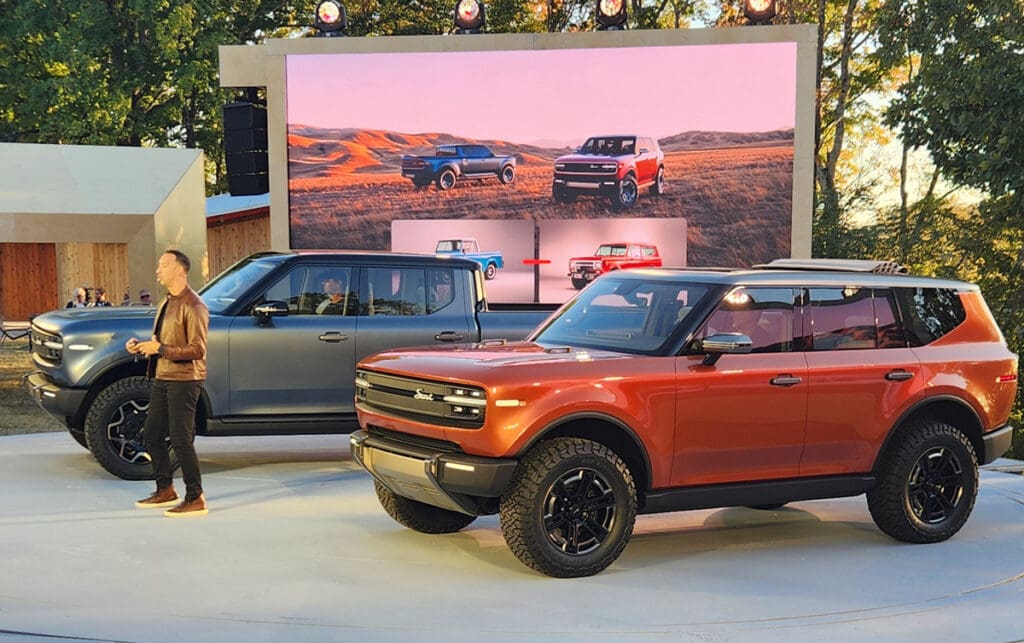
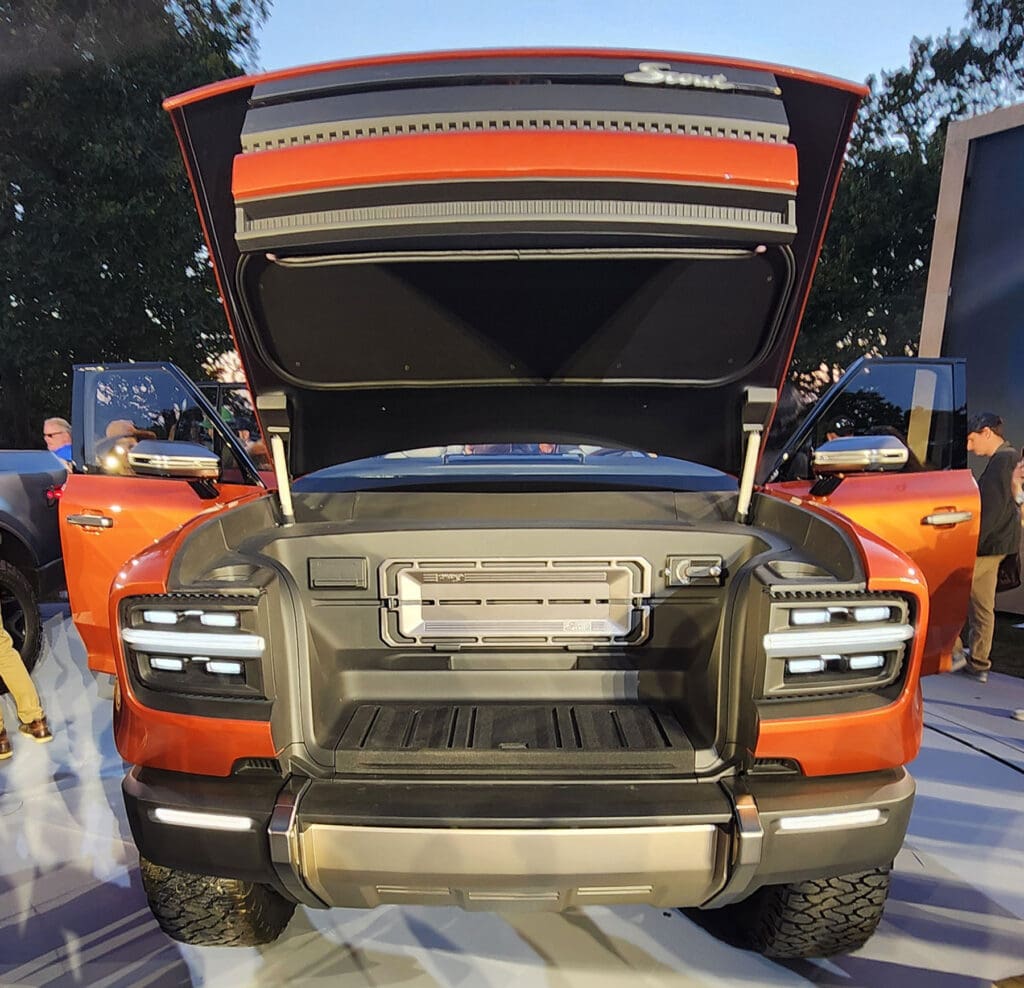
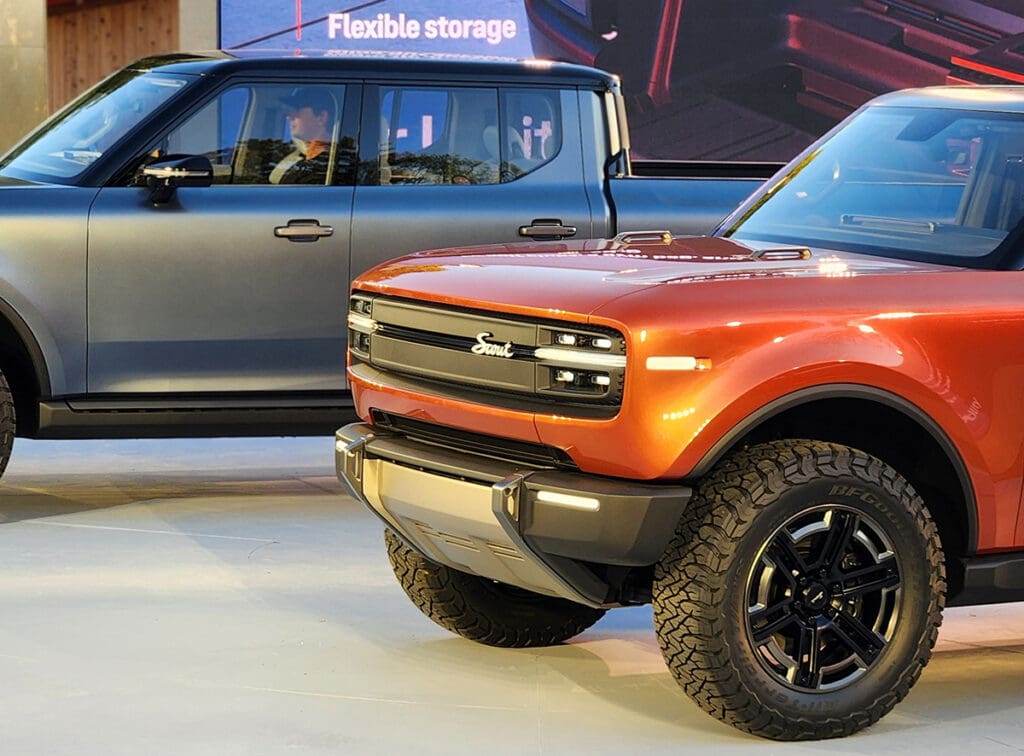
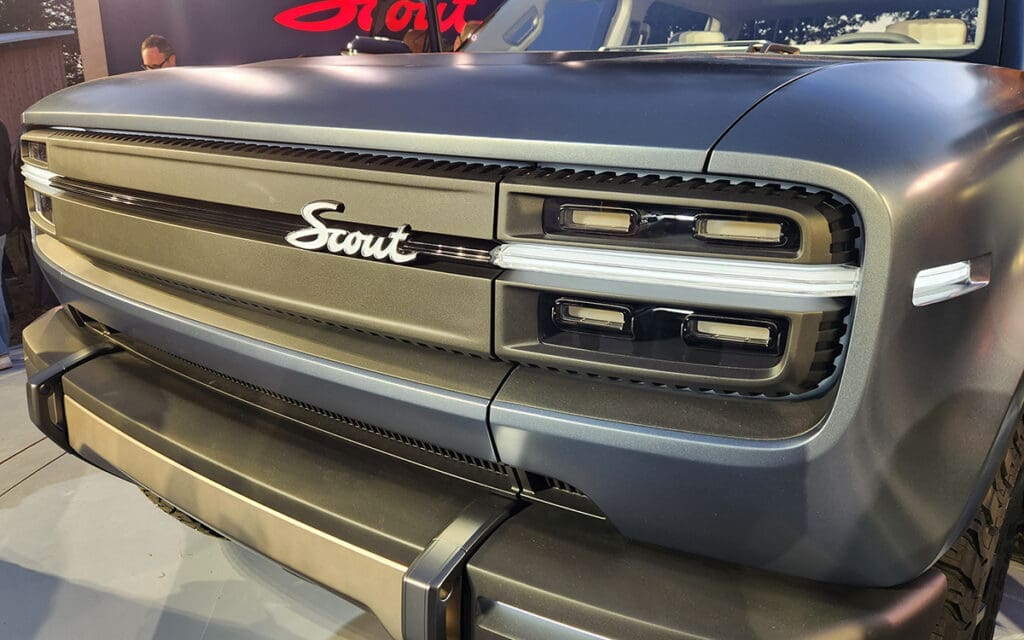
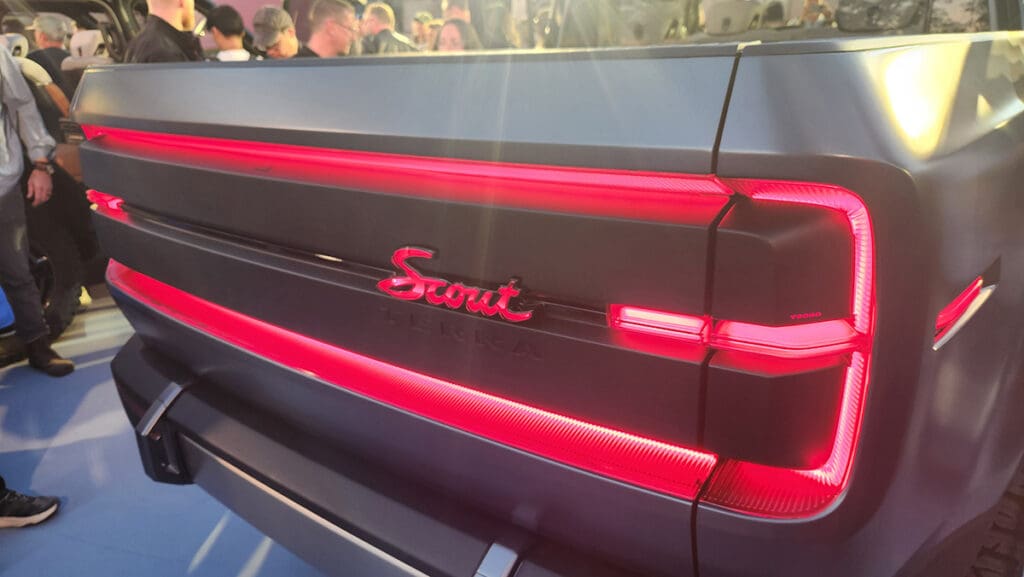
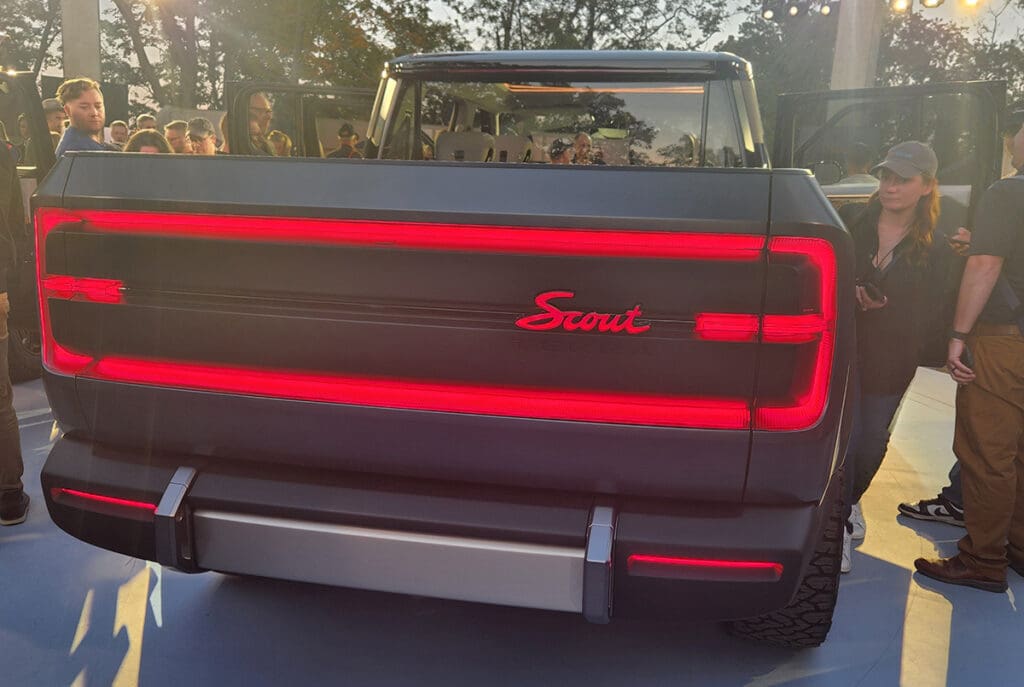
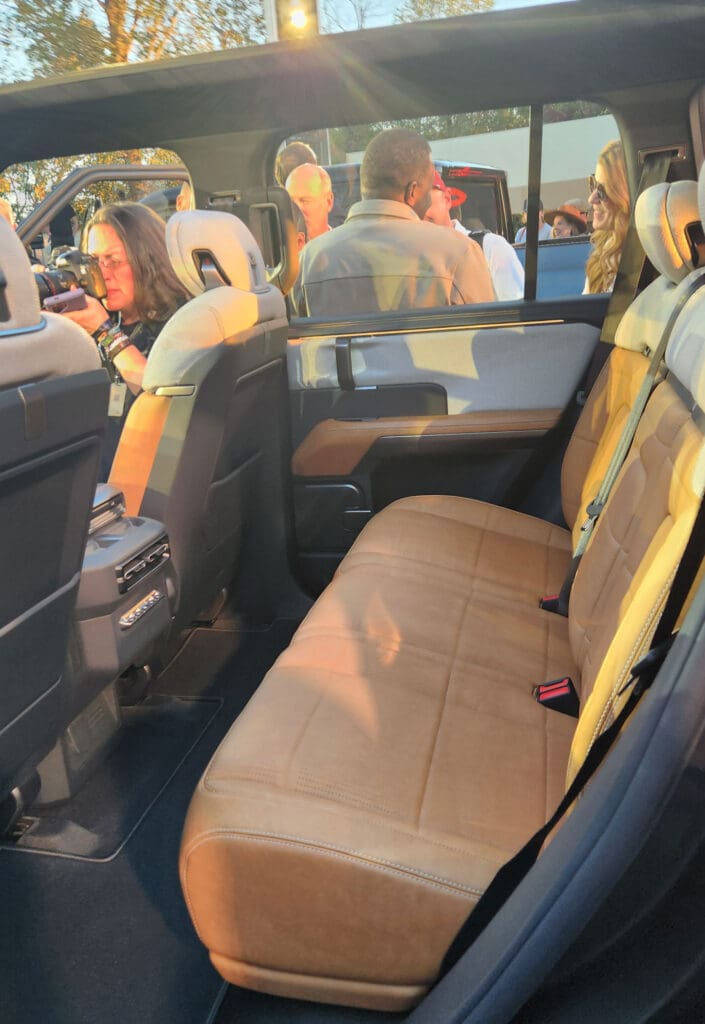
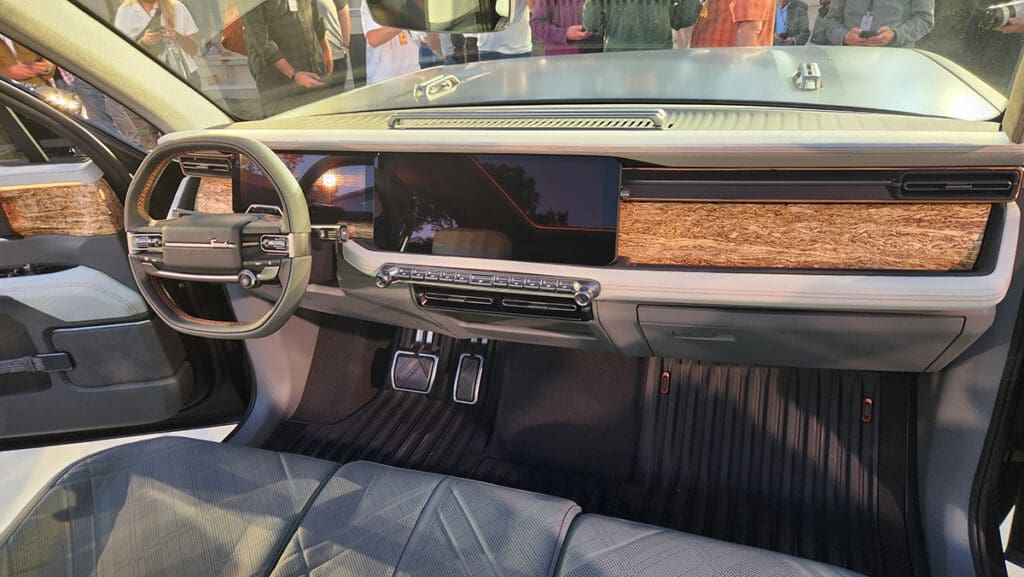
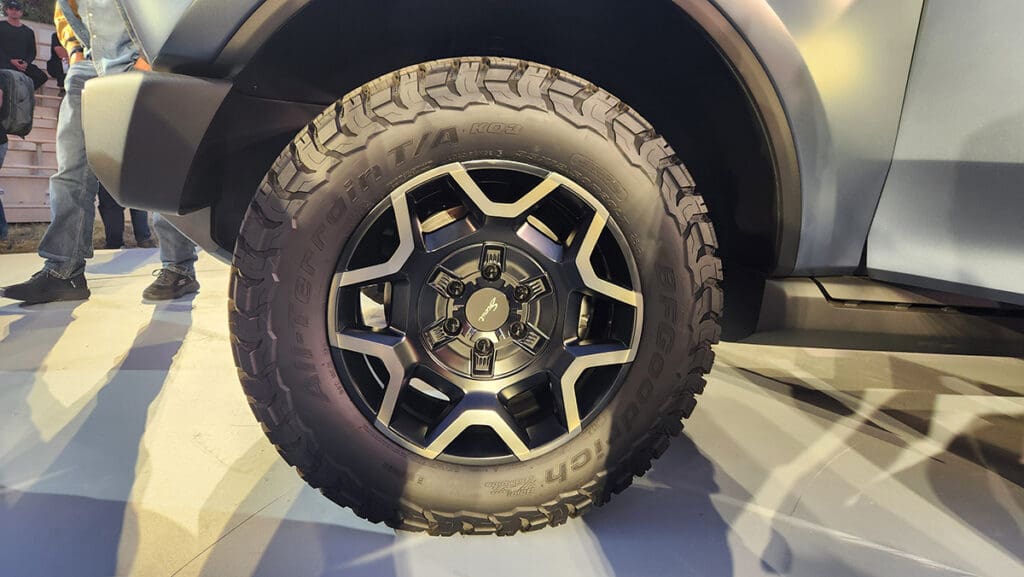
Photos by John Voelcker.
Scout plans to sell the vehicles directly through its own sales and service network, foregoing the franchised dealers that sell all other VW Group vehicles in North America—none of whom have experience with either body-on-frame vehicles or serious 4x4s. The Scouts are to be built in a brand-new factory now under construction near Columbia, South Carolina. Consumers can reserve the new models on the Scout Motors website.
Over the long run, we’d expect Scout to end up selling more Traveler SUVs than Terra trucks—just as Rivian said it would, and has, with the R1S utility vehicle against the R1T pickup truck that preceded it in production.
Heavy on heritage, light on details
Leaning heavily into the heritage theme, the launch event featured a few dozen original International Scouts, including the first one built in 1960 and the last Scout II built in 1980. Scout owners and enthusiasts at the event were uniformly delighted the brand would return, though many said they were dubious about the idea of Scouts powered by batteries and electric motors.
Those original Scouts we saw would be compact to midsize trucks in today’s terms. The new Scouts are full-size trucks, dimensionally far closer to a Ford F-150 and Expedition than to the Rivian R1T and R1S. The longer of the two, the Terra pickup, is 229 inches long, 77 in high, and 92 in wide. Riding on a wheelbase that’s a whopping 28 inches shorter than the Terra’s 148 in, the Traveler SUV is 21 in shorter in length.
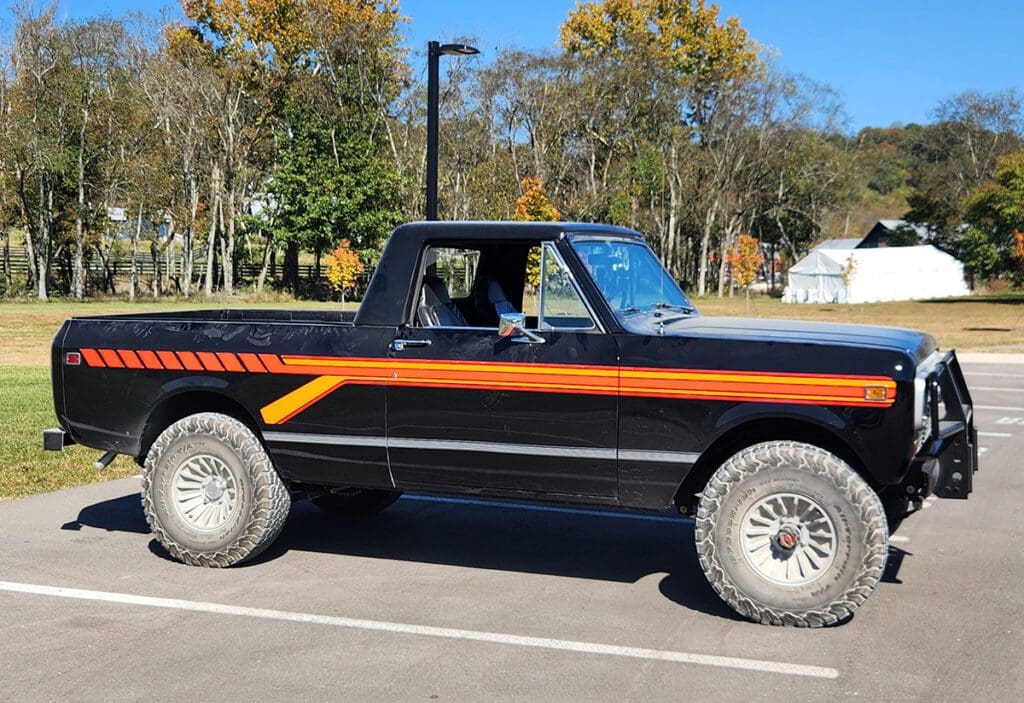
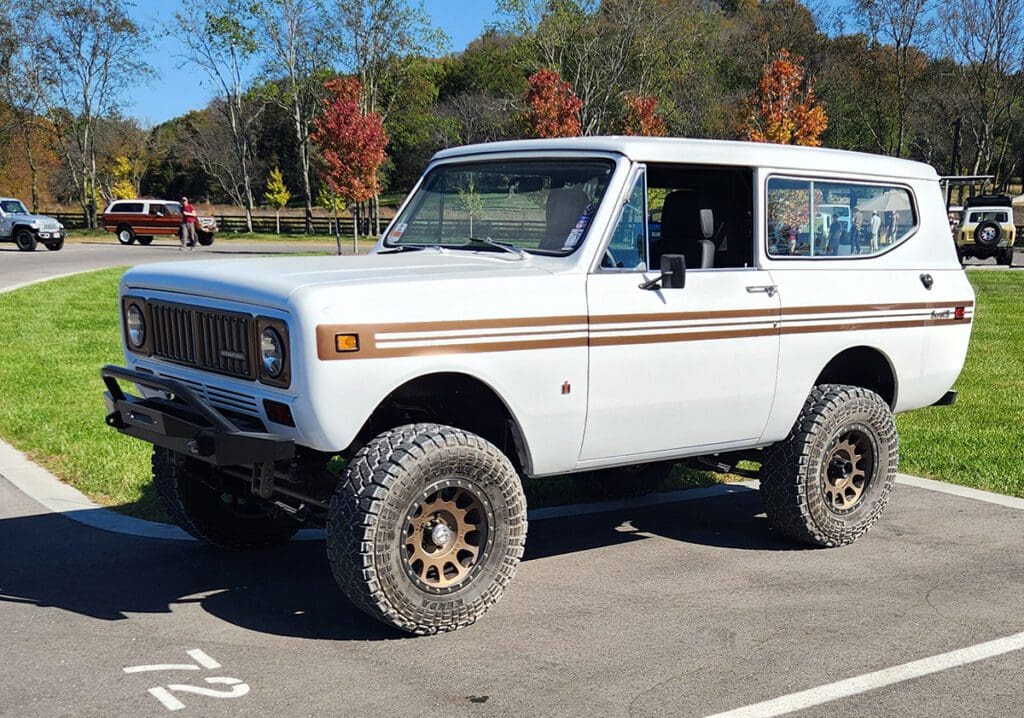
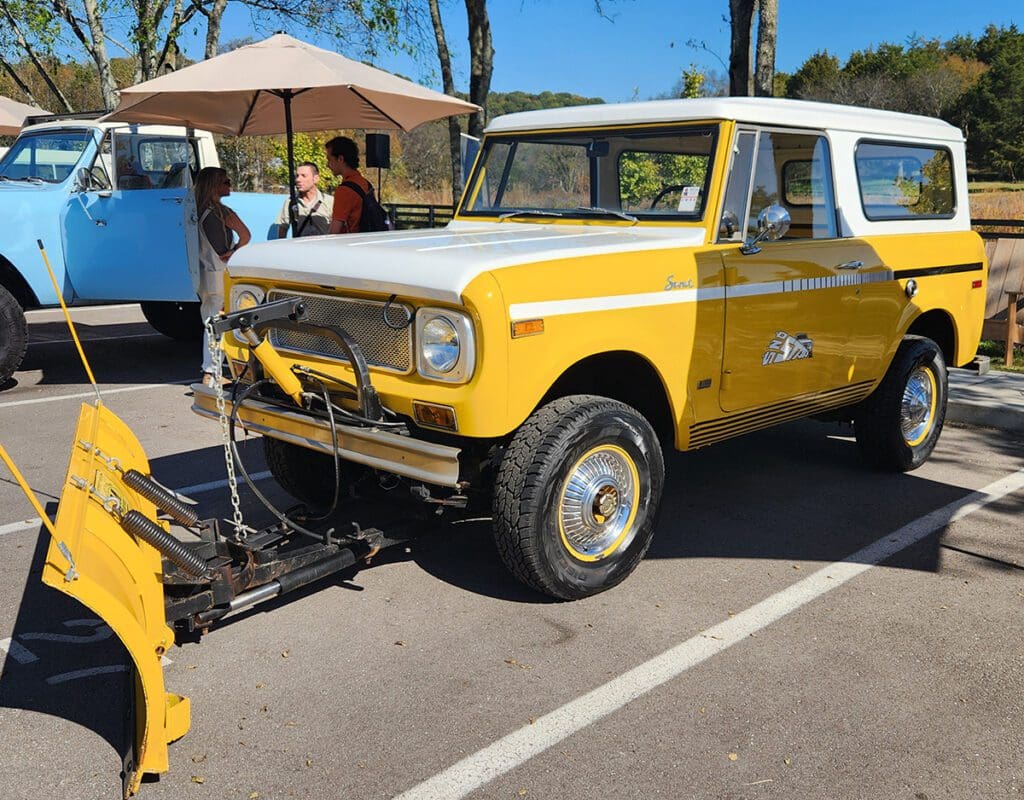
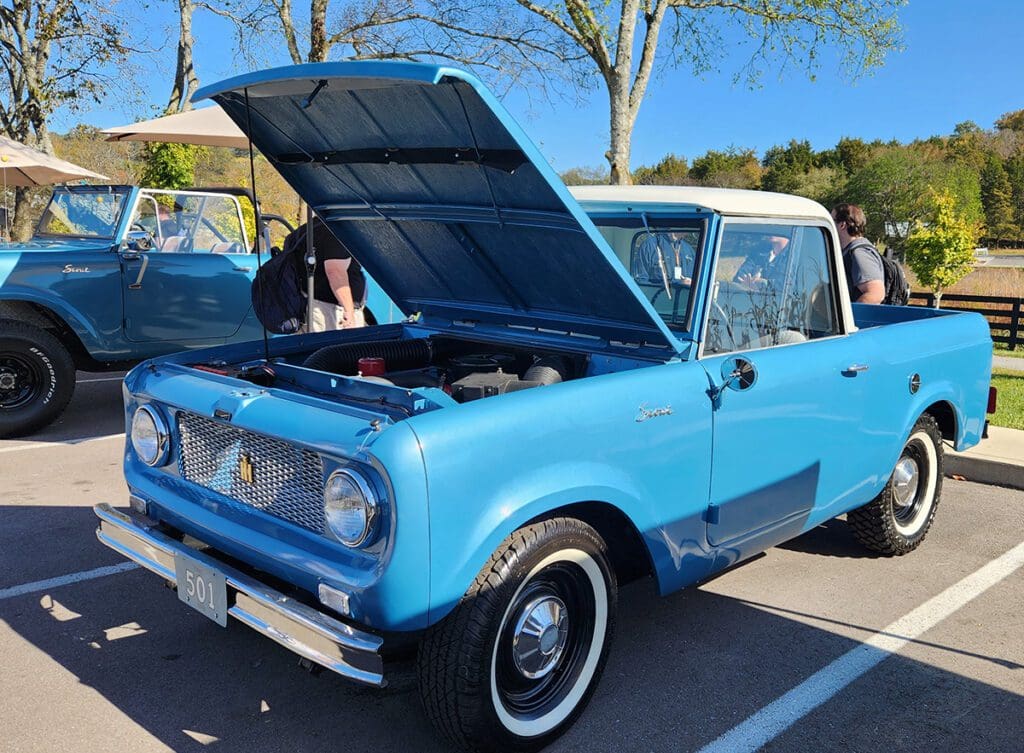
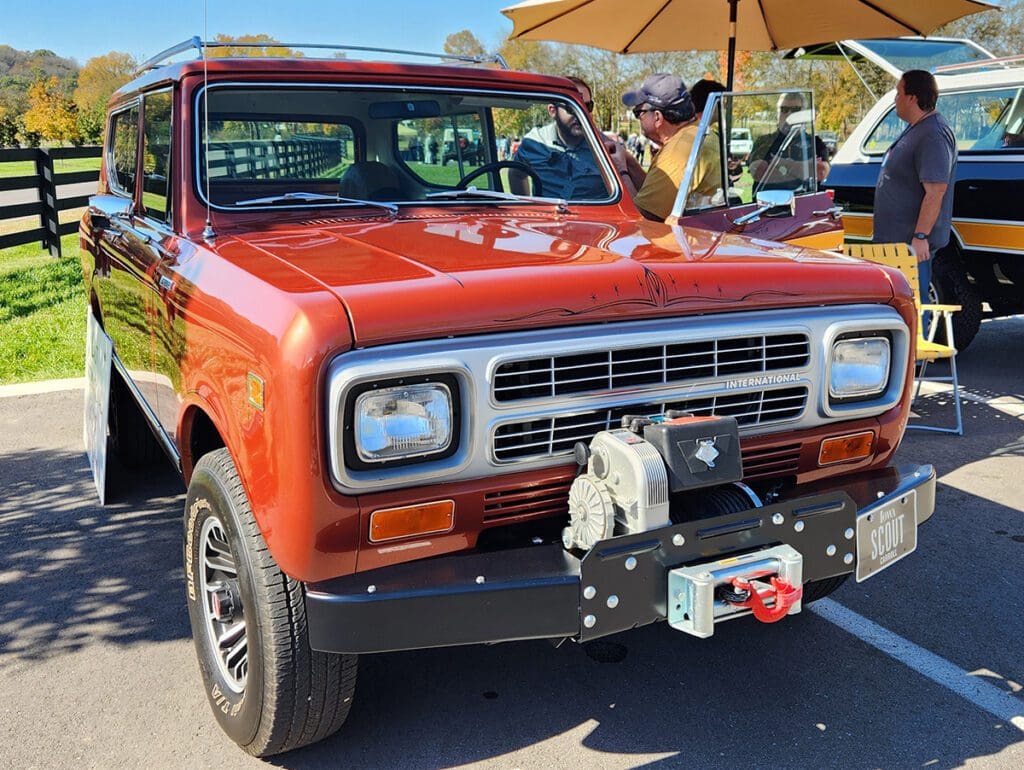
Photos by John Voelcker.
The bed of the Terra is 5.5 feet long, roughly a foot more than that of the Rivian R1T. And 6-foot adults will easily fit into the rear seats, which are reached via exceptionally long doors. A middle seat is even available for the front row, making the two-row Scouts capable of carrying six passengers rather than the usual five.
Weight remains an open question; any battery-electric vehicle with 100 kWh of battery or more likely weighs 3 to 4 tons.
Those who watched the event online commented a lot on similarities to Rivian, with some presuming the Scouts were based on Rivian underpinnings. Given VW’s joint-development agreement with Rivian, announced in July, that wasn’t unreasonable. But excluding Scout’s use of Rivian’s zonal electric architecture—which allows over-the-air updates and additional features to be added during the life of the vehicle—Scout executives uniformly said no structural, mechanical, or interior components came from Rivian.
Details on the specifics of the electric drive trains were sparse. No power output was given, though torque was projected at “near 1,000 lb-ft” with acceleration from 0 to 60 mph as low as 3.5 seconds. Scout gave no details on the range-extending combustion engine, which will be located under the load bay behind the rear axle. (One exec confirmed it will NOT be a diesel, ahem.) The betting among reporters was that the engine will be a version of the Volkswagen EA288 inline-4, likely supplied from VW’s factory in Puebla, Mexico.
Base suspension is mechanical, but air suspension will be available as an option. Wheels up to 35 inches in diameter will be offered, with ground clearance of more than 12 inches and projected wading depth of nearly 3 feet. Payload for each model was quoted as “near 2,000 pounds,” with projected towing capacity given as 10,000+ pounds for the Terra truck and 7,000+ pounds for the Traveler SUV.
Owners doing it for themselves
One theme of the reveal was the simplicity of old-fashioned controls. The Scouts have fixed door handles, not the flush or retracting ones used by Rivian and Tesla to reduce aerodynamic drag. Knobs and dials perform every major function in the cabin—an implicit rebuke to Volkswagen, which has replaced many hard controls in its latest models with onscreen icons and virtual controls.
There’s a small front trunk, which Scout claims is large enough to store a bag of golf clubs, a cooler, and a gym bag. A rectangular panel at the back of the left-rear fender, under the taillight, opens to reveal a NACS charging port—standard on every Scout—and three 120-volt power outlets. Three 240-volt outlets were mentioned as well, something that startled and impressed Scout owners in attendance.
The Scout faithful in attendance clapped and cheered at several points during the presentation over specific features—the bench seat, the power outlets, the locking axles. But the loudest, longest applause came at the end, during a moment when Scout CEO Scott Keogh paused in front of a screen saying “One more thing”.
The screen then displayed a jerry can of gasoline, and Keogh announced the range extender and its name—Harvester, another nod to Scout’s heritage, given its birth as a product from the International Harvester farm-equipment company.
Will Harvester EREVs get plugged in?
Keogh went on to stress the Scouts are still EVs, with all the associated benefits, including the front trunk. But, he noted, the combination of a smaller battery pack and the range-extending generator would provide more than 500 miles of range—something very few EVs offer today.
Afterward, I caught up with Phil Coonrod, the owner of the very first Scout (# 501). He’d had a blast during the day, with the Scout faithful appreciating and complimenting his preservation of the 1960 model. What did he think of the new ones, I asked? He loved them, he said, and planned to order one that evening for his wife.
Which model, the battery-electric or the range-extended one? “Oh, the hybrid,” he said.
Fair enough. Would he plug it in? He paused.
“I don’t know. Probably.”
We’ll see whether the affluent suburban families who are likely to buy the bulk of the new Scouts take the same attitude. As passionate as the heritage Scout community is, and as much as they appreciate their trucks’ 4×4 capabilities, a full-size electric SUV will more likely be used as family transportation than for rock-crawling—as a Scout executive quietly acknowledged.
With more than two years until the start of production, there’s a lot left to learn about the new Scouts. But it seems safe to say the market for full-size, body-on-frame pickup trucks and SUVs—a vehicle category largely confined to North America—will have a new electric entrant in a few years. The new Scouts had a successful debut. Now the company has to do the hard work of getting them into volume production. Stay tuned.
Scout Motors provided airfare, lodging, and meals to enable Charged to bring you this first-person report.
from Charged EVs https://ift.tt/QRXHCbq


No comments:
Post a Comment